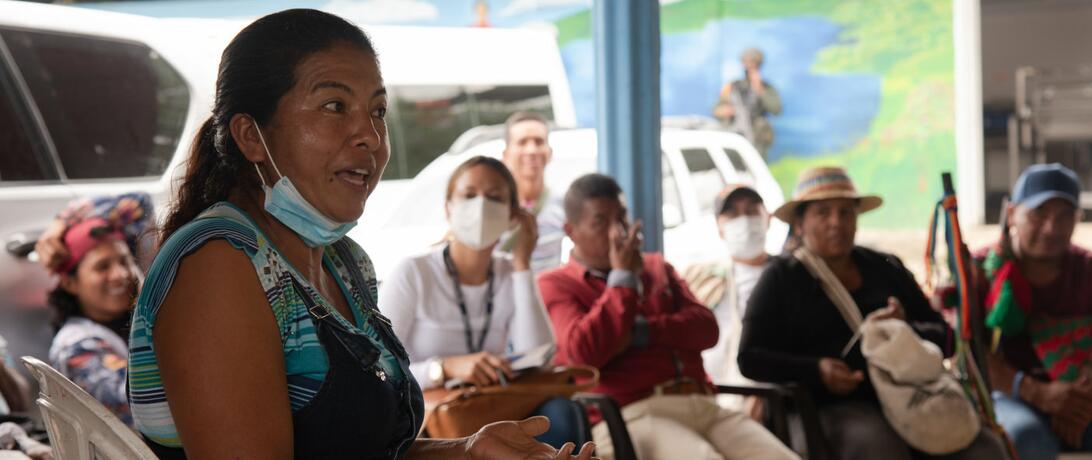
The recent presence of military coups covered in the news may lead people to believe that coups are more prevalent in 2021 than they have been in recent years, however, this perception may warrant further questions pertaining to what qualifies an event as a coup, and how loosely should the term be used? Read more:
By Jon Bellish - OEF Executive Director & Chief Operating Officer
I am fresh back from a wonderful 2-week trip in Colombia, where I was able to meet important partners, spend time with our Colombia team, and see first hand the conflict transformation and community building happening at our ERA in Miranda, Cauca. My experiences in Colombia got me thinking a lot about localization in development and peacebuilding and how we could make it better.
The idea of localization came out of the humanitarian aid sector, beginning in the 1990s and culminating in 2016 in the Grand Bargain, which now covers 84% of all humanitarian assistance dollars worldwide. As originally conceived, localization is the process through which foreign humanitarian agencies “ensure that local and national actors are better engaged in the planning, delivery and accountability of humanitarian action, while still ensuring humanitarian needs can be met swiftly, effectively and in a principled manner.” While there is still room for improvement, the humanitarian aid sector has taken great strides in ensuring that the provision of humanitarian assistance from afar does not fail for a lack of social license or cultural integration.
However, attempts to apply the concept of localization developed in the context of acute humanitarian intervention to broader development and peacebuilding agendas have been less effective. In her book Peaceland, Séverine Autesserre documents why, despite the fact that everyone agrees that local ownership is key to impact and sustainability, measures to localize peacebuilding have had only superficial impacts.
First, it is often not clear to foreign interveners which local actors they should integrate into the process, especially when these actors have opposing views. Second, expatriates often get so frustrated with the behavior of their local counterparts that they eventually stop trying to involve them. And finally, local communities are so used to seeing foreigners come and go, that it becomes difficult to implement a more localized approach in earnest. Autesserre’s research aligns with many others, including a World Bank meta analysis of 500 studies on participatory development planning processes.
During a recent day I spent on the ERA of Miranda, Cauca, I saw the seeds of peace beginning to flower. There was no distinction between campesino (rural farmer) and ex-combatant. There was a palpable sense of shared opportunity, and excitement about a new baby girl that was brought into the world a few weeks earlier. Most importantly, it was clear that PASO was no longer the owner of this project; a new community of ex-combatants, campesinos, including the next generation, were the true owners.
It was in considering this transformation that I realized that localizing the work is not enough. Outside interveners need to localize the people doing the work if we hope to have the same success in localizing peacebuilding as we have in humanitarian assistance. It was clear to me that PASO team members had truly become part of these communities. And in doing so, they had managed to avoid Autesserre’s three-part problem. Fernando and Alfonso knew who was who and who was good at what, so they knew who to include in different parts of the process. And because our team had spent so much time with the community, any miscommunication and frustration—on whichever side—was resolved over time through trust and dialogue.
If we want to localize peacebuilding work, those of us looking to make a difference “from the outside” need to invest the time and resources it takes to blur the outside/inside distinction altogether. We must walk shoulder to shoulder in a spirit of partnership with the communities we hope to serve. It is not enough to localize our work; we have to localize ourselves.
Article Details
Published
Written by
Topic
Program
Content Type
Opinion & Insights